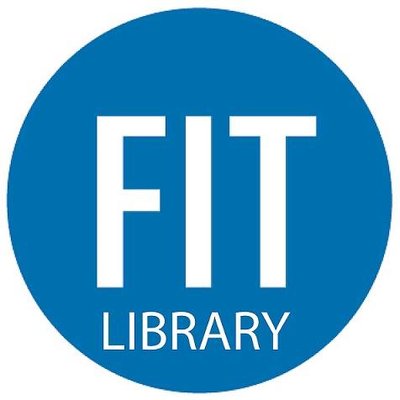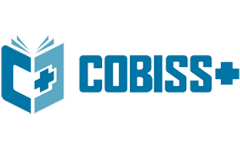Family and Adolescent Values Practice in School Environment
DOI:
https://doi.org/10.61841/8k0v4z94Keywords:
Academic Performance, Communication, Family, Values PracticeAbstract
Values are the essential basis on which social life is based. The family is the basic core of society, resulting in the primary reference in the formation of values of human beings. Education generates the indispensable conditions for people to realize their fundamental rights and acquired capacities, consolidating the practice of values as a key process in the formation of future generations. In Ecuador, the issue of values is a fundamental axis of public policy, so valuable time and important resources are devoted to the formation and practice of values for citizens from an early age. The objective of the research is to determine the impact of the values of adolescents in the school environment in the XXI Century Educational Unit Blanca Cuadros de Zambrano, located in the Rocafuerte canton of the province of Manabí. The methodology used was qualitative and quantitative, for which a bibliographic review of articles, books, book chapters, laws, regulations, manuals and other academic documents related to the role of the family and the practice of values was carried out. of teenagers. It was verified that the low practice of values in students causes problems in academic performance.
Downloads
References
1. Aguirre, A., Caro, C., Fernández, S., &Silvero, M. (2016). Family, school and society. La Rioja: UNIR .
2. Argüello, J. (2009). Identidad e imagen corporativa. El Cid Editor.
3. Barreno, G. & Martínez, E. (2016). Securities education Trainer's Guide. Ministry of Education of Ecuador.
4. Berrios, L. &Buxarrais, M. (2013). Education in values: analysis on the expectations and values of adolescents.
Edu.Edu, 16(2), 244-264.
5. Brotman, L. M., Dawson-McClure, S., Kamboukos, D., Huang, K. Y., Calzada, E. J., Goldfeld, K., &Petkova, E. (2016). Effects of ParentCorps in prekindergarten on child mental health and academic performance: Follow-up of a randomized clinical trial through 8 years of age. JAMA pediatrics, 170(12), 1149-1155.https://doi.org/10.21744/10.1001/jamapediatrics.2016.1891
6. Castro, P., Chacón, N., Mendoza, L., &Varona, E. (2012). The School and the Formation of Values. (E. Cubana, Ed.) Ministry of Education.
7. Days, P. (2015). Dropout in Ecuador. Slideshare. Obtained from https://es.slideshare.net/pablodays/desercin-escolaren-ecuador
8. Bullón, FF, Campos, MM, Castaño, EF, del Barco, BL, & del Río, MIP (2017). Analysis of the academic performance of students in Compulsory Secondary Education according to family variables. Education XX1 ,
9. García-García, JA, Reding-Bernal, A., & López-Alvarenga, JC (2013). Calculation of the sample size in medical education research. Research in medical education , 2 (8), 217-224.
10. HuaireInacio, EJ, & Herrera Álvarez, Á. M. (2015). Family functioning and practice of moral values for living in the classroom in three-year-old children. Horizon of Science , 5 (9).
11. Hoyos, A. (2011). Impact of values in education. ECOTEC University Guayaquil - Ecuador, 1-10.
12. Ibabe, I. (2016). Academic failure and child-to-parent violence: family protective factors. Frontiers in psychology, 7,1538. https://doi.org/10.3389/fpsyg.2016.01538
13. Lastre Meza, K., Salazar, L., Daris, L., &AlcázarBerrío, C. (2018). Relationship between family support and academic performance in Colombian primary school students. Psychogent , 21 (39), 102-115.
14. López, P., Barreto, A., Mendoza, E., & Del Salto, M. (2015). Low academic performance in students and family dysfunctionality. Medisan, 19(9).
15. Ministry of Education of Peru. (2019). Regulation of the Education Law.
16. Noboa. (2018). Noboa, B. (2018). Incidence of moral ethical values in the teaching-learning processes of the students of the 10th year of basic general education of the Herlinda Toral educational unit 2017-2018 school period. Tilulation work prior to obtaining a degree in Education.
17. Perkins, D. F., Syvertsen, A. K., Mincemoyer, C., Chilenski, S. M., Olson, J. R., Berrena, E., ... &Spoth, R. (2016). Thriving in school: The Role of sixth-grade adolescent–parent–school relationships in predicting eighth-grade academic outcomes. Youth & society, 48(6), 739-762.https://doi.org/10.1177%2F0044118X13512858
18. Pinto, R. (2016). The Importance of promoting household values towards primary schools. Ra Ximhai, 271-283.
19. Pulla, J. (2016). The practice of values and their impact on school life. Contemporary Dilemmas: Education, Politics and Values., 1-19.
20. Sanchez Cabezas, P. D. P., Gonzalez Valarezo, M., & Zumba Vera, I. Y. (2016). The educative psychologist and its responsibility in the current ecuadorian society: commitments and challenges of the 21st century education. revistauniversidad y sociedad, 8(4), 121-127.
21. Mustika, I. W., &Sudiantara, K. (2019). Effects of health promotion with family approaches on blood pressure and headache toward elderly. International Journal of Health Sciences, 3(3), 8-16. https://doi.org/10.29332/ijhs.v3n3.344
22. Mustika, I. W., & Harini, G. A. (2017). Increasing education of family support for decreasing depression level towards elderly. International Journal of Health Sciences, 1(3), 10-16. https://doi.org/10.21744/ijhs.v1i3.46
23. Parihar, K. S., Dahiya, R., Billaiya, R., & Jain, P. (2017). Effect of nuclear family in participation of activities. International Journal of Health Sciences, 1(1), 28-35. https://doi.org/10.21744/ijhs.v1i1.20
24. Sapiin, S., Mar’i, M., Atmaja, C., &Khairussibyan, K. (2020). Semiotics performance by marco de marinis in syairwasiatrenungan masa tuan guru kyai haji abdulmadjid. International Journal of Social Sciences, 3(1), 24-31. https://doi.org/10.31295/ijss.v3n1.117
25. Hossain, M. (2018). Cultural and individual differences in comprehension of sports metaphors. International Journal of Humanities, Literature & Arts, 1(1), 25-30. https://doi.org/10.31295/ijhla.v1n1.30
26. Grant, L. S., Gode, B. S., &Amstrong, M. G. (2017). Ideology of translation concept approach on determining a decision by the translator. Linguistics and Culture Review, 1(1), 1-12. https://doi.org/10.37028/lingcure.v1n1.1
27. Suryasa, W., Sudipa, I. N., Puspani, I. A. M., & Netra, I. (2019). Towards a Change of Emotion in Translation of Kṛṣṇa Text. Journal of Advanced Research in Dynamical and Control Systems, 11(2), 1221-1231.
28. Kusumanegara, I. S., Asmony, T., &Numayanti, S. (2018). Work-family conflict on turnover intention regarding work stress as intervening variable. International Journal of Social Sciences and Humanities, 2(2), 141-154. https://doi.org/10.29332/ijssh.v2n2.153
29. Gainau, M. B. (2019). Self-disclosure effect on cultural context of Papuan teenagers. International Journal of Social Sciences and Humanities, 3(2), 62-70. https://doi.org/10.29332/ijssh.v3n2.293
30. Anthony, K. A., Igweh, F., & Stephen, A. (2019). Errors of entrepreneur in Nigeria: the blue ocean strategy as panacea. International Journal of Social Sciences and Humanities, 3(2), 261-276. https://doi.org/10.29332/ijssh.v3n2.327
31. Syufi, Y., Budiarsa, M., Simpen, I. W., &Satyawati, M. S. (2019). Language phenomena of sago in irrires language. International Journal of Social Sciences and Humanities, 3(2), 285-293. https://doi.org/10.29332/ijssh.v3n2.332
Downloads
Published
Issue
Section
License
Copyright (c) 2020 AUTHOR

This work is licensed under a Creative Commons Attribution 4.0 International License.
You are free to:
- Share — copy and redistribute the material in any medium or format for any purpose, even commercially.
- Adapt — remix, transform, and build upon the material for any purpose, even commercially.
- The licensor cannot revoke these freedoms as long as you follow the license terms.
Under the following terms:
- Attribution — You must give appropriate credit , provide a link to the license, and indicate if changes were made . You may do so in any reasonable manner, but not in any way that suggests the licensor endorses you or your use.
- No additional restrictions — You may not apply legal terms or technological measures that legally restrict others from doing anything the license permits.
Notices:
You do not have to comply with the license for elements of the material in the public domain or where your use is permitted by an applicable exception or limitation .
No warranties are given. The license may not give you all of the permissions necessary for your intended use. For example, other rights such as publicity, privacy, or moral rights may limit how you use the material.
















